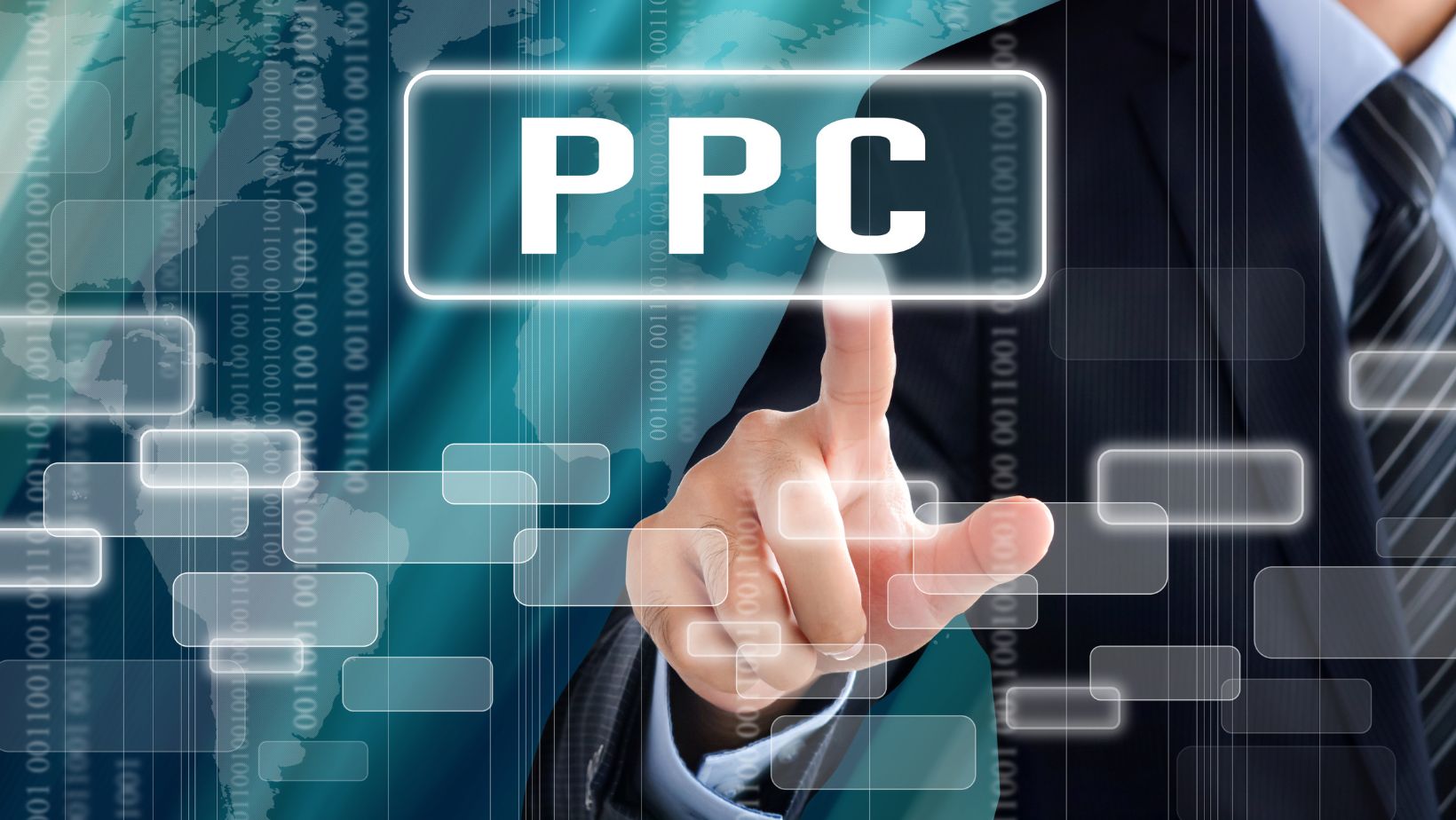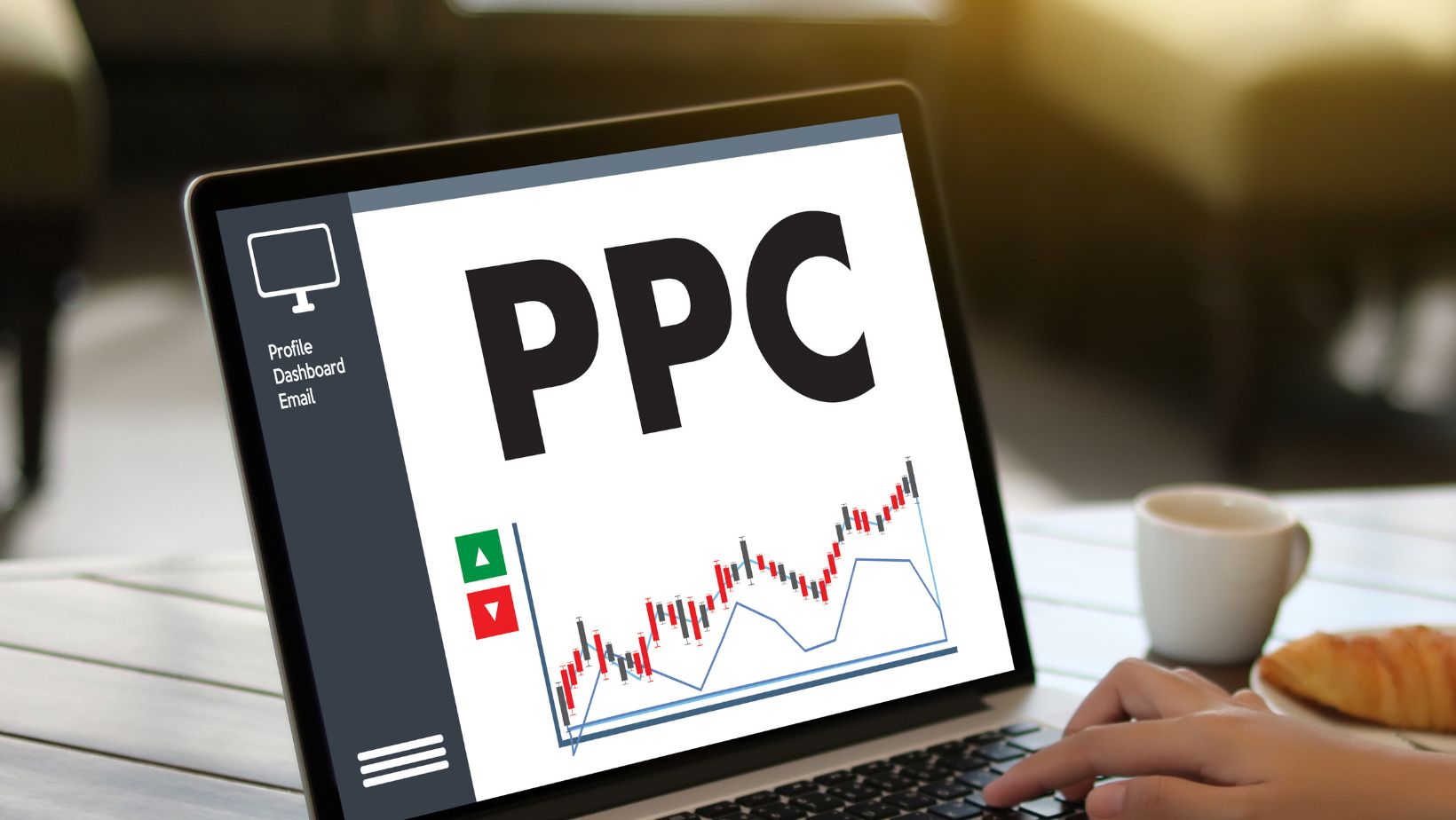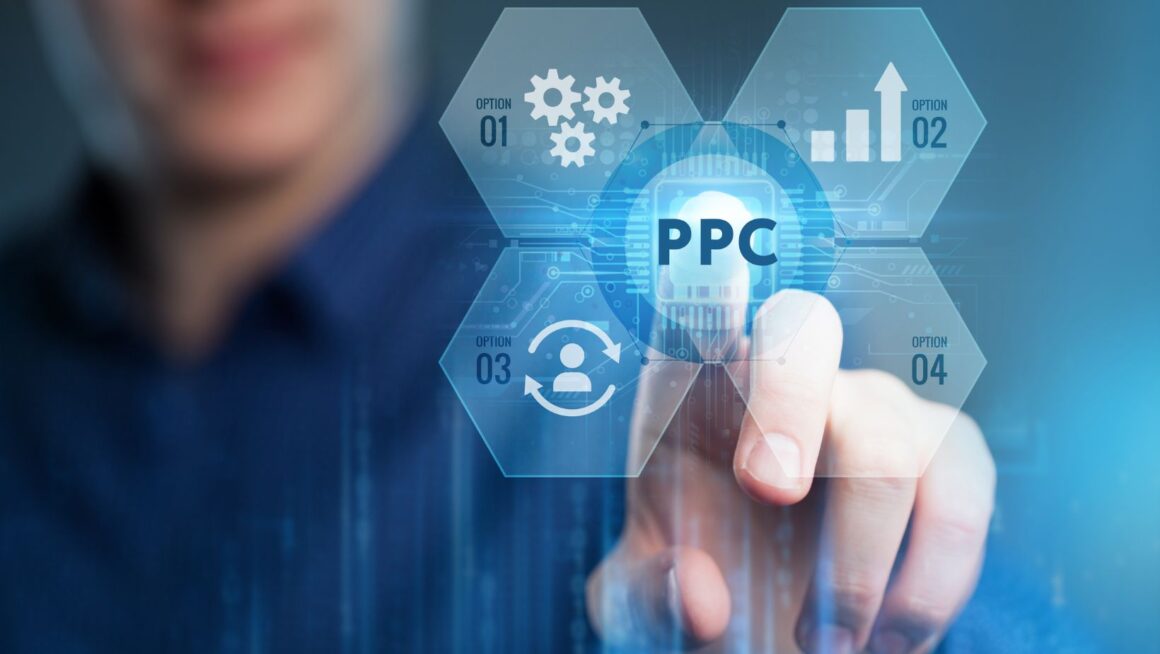PPC marketing which stands for pay-per-click marketing, is a digital advertising model where advertisers pay a fee each time one of their ads is clicked. Essentially, it’s a way of buying visits to your site rather than attempting to “earn” those visits organically through search engine optimization (SEO). Search engine advertising is one of the most popular forms of PPC, allowing advertisers to bid for ad placement in a search engine’s sponsored links when someone searches for a keyword that is related to their business offering.
| Key PPC Concept | Description | Why It’s Important for Beginners |
| PPC Campaign | The main organizational structure containing ad groups, keywords, and ads. | Provides the framework for all your advertising efforts and budget control. |
| Keywords | The words or phrases users type into search engines that trigger your ads. | The foundation of your campaign; targeting the right keywords is crucial for success. |
| Ad Auction | The real-time process that determines if an ad will show and in what position. | Understanding this helps you focus on factors like Quality Score, not just bid amount. |
| CPC (Cost-Per-Click) | The actual amount you pay for each click on your ad. | A core metric for managing your ad spend and evaluating campaign efficiency. |
| Conversion | A specific action a user takes on your website that is valuable to your business. | The ultimate goal of most PPC campaigns; tracking this measures your true ROI. |
E-Tablolar’a aktar
Understanding the Power of Pay-Per-Click Advertising in 2025
In the vast landscape of digital marketing, PPC marketing stands out for its immediacy and control. Unlike organic strategies like SEO, which can take months to yield results, a PPC campaign can start driving targeted traffic to your website almost instantly. This makes it an incredibly powerful tool for businesses of all sizes, from local startups looking to attract their first customers to global enterprises launching a new product. 
The beauty of the pay-per-click model lies in its precision. You have granular control over who sees your ads, where they see them, and how much you’re willing to pay for a potential customer. In 2025, with advanced targeting options and sophisticated machine learning algorithms on platforms like Google Ads and Microsoft Advertising, PPC allows you to reach your ideal audience at the exact moment they are actively searching for the products or services you offer. This intent-driven approach is what makes PPC one of the most effective and measurable forms of online advertising available today.
How Does PPC Marketing Work? The Core Mechanics
At its core, PPC operates on a bidding system. Let’s break down the process, focusing on the most common platform, Google Ads.
H3: The All-Important Keyword Research
Everything in search-based PPC begins with keyword research. Before you can create a single ad, you need to understand what your potential customers are typing into the search bar.
- Identifying Your Core Keywords: Start by brainstorming the terms you think people would use to find your business. Think like a customer. What problems do you solve? What products do you offer?
- Using Keyword Research Tools: Tools like Google Keyword Planner, Ahrefs, and SEMrush are invaluable. They help you discover new keyword ideas, see their monthly search volume, and estimate how competitive they are.
- Focusing on User Intent: Try to understand the intent behind a keyword. Someone searching for “best running shoes” is likely in a different stage of the buying cycle than someone searching for “buy Nike Air Zoom Pegasus.” Targeting keywords with clear commercial or transactional intent is key to driving conversions.
H3: The Ad Auction Explained
When a user performs a search, Google runs a complex, lightning-fast ad auction to decide which ads (if any) will appear and in what order. It’s not just about who has the highest bid. The winner is determined by a formula called Ad Rank.
Ad Rank = CPC Bid x Quality Score
- CPC Bid: This is the maximum amount you’re willing to pay for a single click on your ad.
- Quality Score: This is a crucial metric Google uses to estimate the quality and relevance of your keywords and ads. It’s scored from 1 to 10 and is based on three main components:
- Expected Click-Through Rate (CTR): The likelihood your ad will be clicked.
- Ad Relevance: How well your ad matches the user’s search query.
- Landing Page Experience: The quality and relevance of the page users land on after clicking your ad.
A high Quality Score can mean you pay less per click and get a better ad position. This is Google’s way of rewarding advertisers who provide a good user experience.
Building Your First PPC Campaign: A Step-by-Step Guide
Launching a PPC campaign can seem daunting, but by breaking it down into manageable steps, any beginner can get started.
H3: 1. Setting Up Your Campaign Structure
A well-organized account is the foundation of a successful PPC strategy. The hierarchy in Google Ads is: Campaign > Ad Group > Keywords & Ads.
- Campaigns: The highest level. Here you set your overall budget, location targeting, language, and primary advertising goal (e.g., sales, leads).
- Ad Groups: Within each campaign, you create ad groups. Each ad group should contain a small set of highly related keywords. For example, a shoe store might have separate ad groups for “men’s running shoes,” “women’s hiking boots,” and “kids’ sandals.”
- Keywords and Ads: Inside each ad group, you have your keywords and the ads that will be triggered by them. By keeping your ad groups tightly themed, you can write highly relevant ad copy that speaks directly to the user’s search, which improves your Quality Score.
H3: 2. Writing Compelling Ad Copy
Your ad is your first and only chance to convince a user to click. It needs to be clear, compelling, and relevant.
- Mirror the User’s Search: Your ad headline should include the keyword the user searched for. This immediately signals relevance.
- Highlight Your Unique Value Proposition (UVP): What makes you different? Do you offer free shipping, a 24/7 support line, or a special discount? Make it prominent.
- Include a Strong Call-to-Action (CTA): Tell the user what to do next. Use action words like “Shop Now,” “Learn More,” or “Get Your Free Quote.”
H3: 3. Designing a High-Converting Landing Page
The user’s journey doesn’t end with the click. The landing page is where the conversion happens. A great landing page is:
- Highly Relevant: The message on the landing page should be a seamless continuation of the promise made in your ad.
- User-Friendly: It should load quickly, be easy to navigate (especially on mobile), and have a clean design.
- Focused on a Single Goal: A good landing page has one clear objective and a prominent call-to-action button that facilitates that goal.
H4: 4. The Importance of Conversion Tracking
You cannot optimize what you cannot measure. Conversion tracking is a small piece of code you place on your website that tells your ad platform when a user completes a desired action (like making a purchase or filling out a form). Without this data, you are essentially guessing which keywords and ads are actually driving value for your business. Setting up conversion tracking is the single most important step for measuring your PPC ROI.
Managing and Optimizing Your PPC Campaigns
PPC is not a “set it and forget it” activity. Continuous management and optimization are required to maximize performance.
- Analyze Performance Data: Regularly review your campaign metrics. Which keywords are driving conversions? Which ads have the highest CTR?
- Refine Your Keyword List: Pause underperforming keywords and add new ones based on the Search Terms Report.
- A/B Test Your Ad Copy: Always be testing different headlines and descriptions to find the combinations that resonate most with your audience.
- Optimize Your Bids: Adjust your bids based on keyword performance, allocating more of your ad spend to the terms that are driving the best results.
By adopting a mindset of continuous improvement, you can transform your PPC campaigns from a simple traffic source into a powerful engine for business growth.
Frequently Asked Questions (FAQs)
Here are answers to some of the most common questions beginners have about PPC marketing, sourced from discussions on platforms like Reddit.
- What’s the difference between PPC and SEO?
PPC (Pay-Per-Click) involves paying for ad placements at the top of search engine results pages (the “sponsored” links). You get immediate traffic, but the traffic stops as soon as you stop paying. SEO (Search Engine Optimization) is the process of optimizing your website to rank higher in the organic (non-paid) search results. SEO takes more time and effort to see results, but it can provide a sustainable source of “free” traffic over the long term. A strong digital marketing strategy often includes both.
- How much does PPC cost? Is it expensive?
The cost of PPC varies dramatically depending on your industry, the keywords you target, and the level of competition. Some keywords might have a CPC of less than a dollar, while highly competitive keywords in industries like law or insurance can cost over $50 per click. You have full control over your budget and can set daily limits to ensure you never spend more than you are comfortable with. The focus should not be on the cost, but on the return on investment (ROI). A $50 click is profitable if it leads to a $500 sale.
- What is a good Click-Through Rate (CTR)?
A “good” CTR is relative and depends on your industry and the keywords you’re targeting. The average CTR on Google Ads is around 3-5% for search ads. However, for branded keywords (when someone searches for your company name), you should expect a much higher CTR (e.g., 30%+). Instead of chasing a specific number, focus on improving your CTR over time by writing more relevant ad copy and improving your Quality Score.
- How long does it take to see results from PPC?
You can start seeing traffic and clicks from a PPC campaign within hours of it going live. However, seeing meaningful business results (like consistent leads or sales) and having enough data to properly optimize the campaign typically takes time. You should plan for an initial “learning phase” of at least 1-3 months to gather data, test, and refine your strategy.
- Can I do PPC myself, or should I hire an agency?
Many small business owners successfully manage their own PPC campaigns, especially with the user-friendly interfaces and AI-powered recommendations available on platforms like Google Ads. 
If you have the time to learn the fundamentals and are willing to actively manage and optimize your account, doing it yourself is a viable option. However, if you have a larger budget, operate in a highly competitive market, or simply lack the time, hiring an experienced PPC professional or agency can often lead to better results and a higher ROI.

